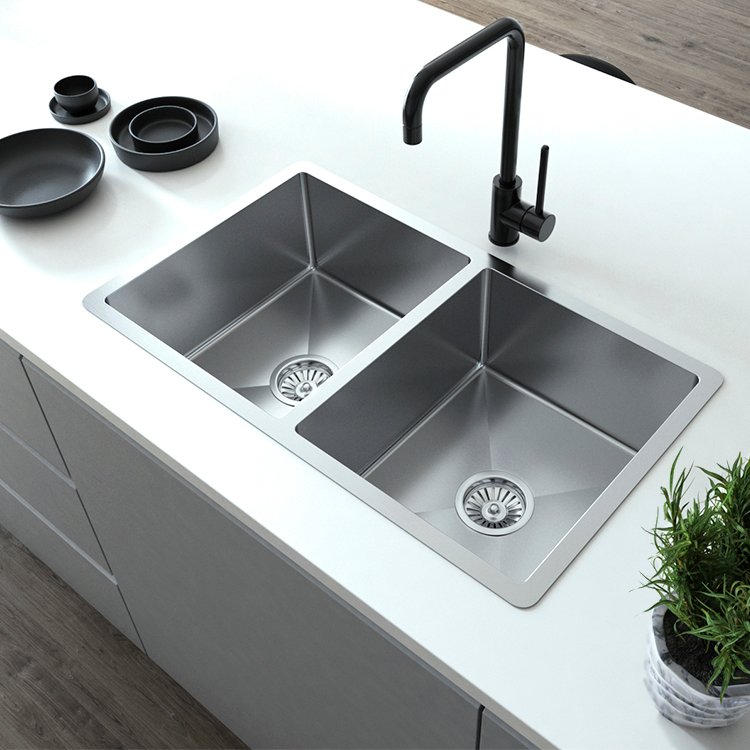When choosing a stainless steel sink, there are a few key factors to consider. First, you should look at the gauge of the steel. The gauge refers to the thickness of the steel, with a lower number indicating a thicker material. Generally, a higher-gauge steel will be more durable and less prone to denting or other damage. Another important factor to consider is the finish of the sink. A brushed finish can help to hide scratches and other blemishes, while a mirrored finish can add a sleek, modern look to your kitchen. Finally, you should consider the size and configuration of the sink, as well as the number and type of included accessories such as a drain basket or cutting board.

- Consider the gauge of the stainless steel. A lower gauge means a thicker and sturdier sink. A gauge of 18 or 16 is considered good quality.
- Look for a sink with a satin or brushed finish, as it is less susceptible to showing fingerprints and water spots.
- Check for a noise-reducing coating or sound-deadening pads on the bottom of the sink to reduce excess noise from water and dishes.
- Consider the sink’s dimensions and style, and ensure it will fit in your kitchen and match your kitchen’s design.
- Read reviews and do research on the brand and manufacturer to ensure their reputation for producing high-quality products.
- Consider purchasing a sink with a warranty, as it will provide peace of mind and protection against any defects or issues with the sink.
Stainless steel sinks are a popular choice for many kitchens due to their durability, versatility, and sleek appearance. However, not all stainless steel sinks are created equal. Choosing a quality stainless steel sink is important to ensure it will last for years to come and provide the functionality and aesthetics you desire.
One important factor to consider when choosing a stainless steel sink is the gauge. The gauge refers to the thickness of the material and a lower gauge means a thicker and sturdier sink. A gauge of 18 or 16 is considered good quality and will provide durability and resistance to dents and scratches. Thinner gauges may be more susceptible to damage and may not last as long.
